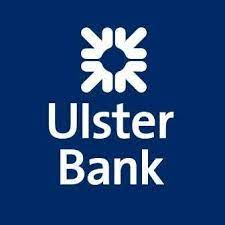Mortgages
Mortgage Claims
There is no greater financial commitment for people than taking out a mortgage. Such is the importance, giving mortgage advice became regulated by the Financial Services Authority in October 2004 and is now regulated by the Financial Conduct Authority. Because of this
regulation, mortgage advisers have to ensure the financial advice they give is correct and accurate. This includes what type of mortgage is most suitable for you and whether you can afford the mortgage.
Search for a Company to begin a Claim
Despite the regulation from the Financial Conduct Authority, there is still strong evidence that many people do not receive sound advice from their mortgage advisers. In the summer of 2010, ‘Mortgage Market Review: Responsible Lending’ which was produced by the Financial Services Authority paper pointed out the impact that mortgage miss-selling had in the lead up to the financial recession a few years earlier. Moreover, people can and have received incorrect mortgage advice but in a number of different ways. If you have been mis-sold a mortgage product or a mortgage then this article will explain that different kind of ways that may have occurred as well as what you can do about it in order to make a mortgage claim.
Of course there are many people who are content with their mortgages as their advice has been correct and accurate however poor lending and mis-selling from some mortgage companies has left many people in real trouble. This poor advice from mortgage advisers means that many are struggling to meet their repayments. In more extreme cases, there are instances are unable to repay their mortgage and are facing repossession.
The fact that such examples exist shows that mortgage brokers as well as lenders have been breaking the rules and mis-selling their services. Following a number of reports to the Financial Services Authority with regards to the conduct of brokers and lenders, the FSA found out that many had been lending money to those who were simply unable to repay their mortgage despite having received advice from their mortgage adviser.
How Has My Mortgage Been Mis-sold?
The first way in which your mortgage may have been mis-sold is if your mortgage adviser did not alert you how the changes in interest rates may affect or simply did not take this into consideration at all. If they did not do this then you could make a mis-sold mortgage claim.
An instance of this would be if you took out a fixed rate mortgage then your payments for that mortgage would be fixed over a certain period. When that fixed rate has ended your mortgage payments will have changed to the normal rate which was offered by your lender. However this would have resulted in payments increasing from that period onwards at an alarming rate. This could mean that you have been mis-sold your mortgage and could make a claim as your mortgage adviser did not alert you to the increase in cost that you would face after paying the fixed amount over a certain period.
Your Advisor Did Not Alert You to Changes in Your Circumstances
An example of this could be for someone who retires whilst in the middle of paying a mortgage. If that person had still had 5 years, for instance, to pay on their mortgage despite being in retirement then it is the job of the mortgage adviser to establish how you will continue to afford the mortgage.
To pay existing debts, you undertook a re-mortgage
If you have undertaken a re-mortgage in order to pay existing debts then your advisor was responsible for considering that would be incurred. These costs would be because of the fact that the period of your debt would have been increased therefore the implications of making an unsecured loan become secured against your own home.
An example of this will be if you re-mortgaged to repay off an existing loan that had two years to run. This probably meant that you had to pay a less amount each month, which helped out in the short term. However it also means that you are repaying the loan over your mortgage term which could be up to twenty-five years. Added to that is that you’ll also be paying interest over a more substantial period. Although it may be a good short-term fix, this example results in you paying more overall
You should have had a “high street” mortgage instead of a “sub-prime” mortgage
If you have a poor credit rating or have struggled with payments in the past you may have been offered a sub-prime mortgage. It can also be offered to you require a high loan against your property’s value or if your income is below the level of which the mortgage lender will accept. These sub-prime mortgages usually have higher interest rates.
If none of the reasons above is relevant to you and you were given a sub-prime mortgage then you may have been mis-sold your mortgage and eligible to make a mortgage claim.
You had proof of income but were still arranged a self-certification mortgage
If you were advised to take a self-certification mortgage but did not need one then it is possible you have been mis-sold and could make a mortgage claim. With self-certification mortgages, you do not have to provide your lender with evidence of income. Consequently the lender charges higher rates of interest because they are taking more of a risk in lending to you.
There are also concerns about mortgage fraud and self-certification mortgages. This is when advisers have told you to inflate your income in order for you to receive a mortgage when normally your income would be too low.
The adviser did not assess if you wanted a “capital and interest” or “interest-only” mortgage
If you do not want to risk having money left to pay at the end of your mortgage then a “capital and interest” mortgage would be suitable for you. With every payment you repay interest on the mortgage as well as some amount back to the lender. They then work out how much you need to repay monthly so you will not miss any future payments, which is why it would be preferable.
On the other hand with an “interest-only” mortgage you only pay interest on the mortgage to the lender. This means you must use an investment vehicle, or repayment vehicle, to repay the debt which usually consists of ISA’s or endowments.
With an interest-only mortgage, you will have lower interest-rates and pay a lower amount each month. However there is a risk that the repayment vehicle you use may not carry the repayments until the end of the term of the mortgage. Your advisor therefore should have alerted you to the risk of this beforehand.
You took out your mortgage with a lender
The same principles apply if you took your mortgage out directly with a lender if they give you suitable mortgage advice. If they did that, then your lender was required to adhere to the same principles.
How to spot the signs you have been mis-sold your mortgage
Interest Only Mortgages
Your broker or lender should have explained that, although this was the cheaper option in the short-term, in the long-term an interest-only mortgage would result in you paying more. Your broker or lender should have also given examples of a capital and repayment mortgages and notified you that at some stage you might be required to switch to a repayment mortgage.
Repayment Investments
These investments, like endowment policies, are designed to pay off the mortgage when it is completed. Despite this, there are still instances where this is not the case and a further sum is required.
Debt Consolidation
If you were not informed by your adviser that you would be increasing the interest rates by moving all your credit cards and loans onto your mortgage, then this is mortgage mis-selling. You should have been advised that, even though it would cost less in the short-term, doing this would increase the term of your debt.
Affordability
Your income, household budget and outgoings should have all be assessed. This would have worked out your disposable income and if this was not worked out then you may have been mis-sold and could make a mortgage claim as you could not afford the product.
Self-Certification
Mortgage brokers love self-certification or fast-track mortgages because of their high commission. If you were encouraged to take out one of these even though you were able to prove your income, then you were mis-sold your mortgage.
Post-Retirement Mortgage
You should have been made aware if your mortgage will run past your retirement or if circumstances have changed meaning that your mortgage will run into your retirement. This is because your adviser needs to work out how you will meet these mortgage repayments when you are retired.
Right to Buy Mortgages
There are three things that people do not tend to know about right to buy mortgages. The first is that the mortgage payment will be higher than the rent and the second is that they would lose their housing benefit. Finally, the rent to buy scheme means that you become responsible for maintenance costs.
‘Sub Prime’ Mortgages
Subprime mortgages are usually for borrowers who have a low credit score or poor credit history. However you may have been advised to purchase one of these even if you had an adequate credit rating.
High Broker Fees
Finally, you could have paid over the odds to your broker or your broker fee could have been added to your mortgage without your knowledge. If this was the case then you would be paying interest on it and may be due compensation.
If you want to investigate a possible claim for mortgage mis selling, we operate on a No Win No Fee basis. Simply contact us using our contact form and we will assess your case for you free of charge




















































